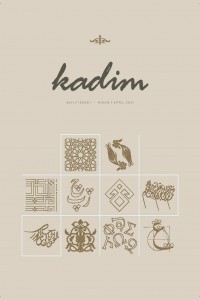
Kadim
Yazarlar: Arif BİLGİN
Konular:Tarih
Anahtar Kelimeler:Imperial cuisine,Topkapı Palace,Matbah-ı Amire,Imperial Kitchen,Cooks from Bolu,Mehmed II
Özet: This article tries to explore the entrance of Bolu-originated-cooks into the imperial kitchens of the Ottoman Empire. It primarily intends to correct conventional wisdom, telling that during Mehmed II's reign, they were first employed in the palace. Understanding that this information comes from only one source and without a reference, the study tries to determine when they enter the kitchen. To this end, it analyzes wage registers, covering some records from the sixteenth to the nineteenth centuries, reflecting the personnel of the imperial kitchen. By this, it claims that it was unlikely to form teams of kitchen-related employees specifically originated from one or more cities until the mid-seventeenth century. Until that time, the staff of the palace kitchens almost entirely originated from Rumelia. It is after that time when this pattern began to change with the personnel coming from Anatolia. Interestingly, this phenomenon also overlaps with the decline of the devşirme system. The rise of the Anatolian cooks in the kitchens continued in the eighteenth century and some city-based clusters emerged. In the first decades of the nineteenth century, most of the kitchen stuff was from Nevşehir. However, there is no sign of Bolu originated people between 1814 and 1826. After the abolishment of the Janissary corps, cooks from central Bolu, Dörtdivan, Çarşamba (Seben) were intensively present in the royal kitchens. The article shows that these rising employment rates were related to their well-known culinary skills in Istanbul's elite circles.